The Imperative of Differentiation: Now More than Ever
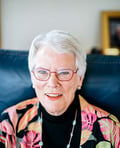
 Presenters: Carol Ann Tomlinson, Mike Murphy
Presenters: Carol Ann Tomlinson, Mike Murphy
Many teachers report that as they worked with students over the past two years, both online and in constrained school settings, they felt the need for differentiation more clearly and more urgently than ever. As they continue to teach in unsettled times and conditions, teachers face challenges related to a wide array of student learning needs that intersect with issues related to equity, economic disparity, family stresses, and isolation. These pressing needs result in student frustrations and sometimes troubling behaviors. The idea of a test-driven, teacher-centered, one-size-fits-all approach to teaching and learning seems to be precisely the wrong path ahead.
This session is designed as an opportunity for teachers and school leaders to focus on the fundamental principles and practices of differentiation—its underpinnings—and to take stock of their current progress in applying those principles in the classroom and/or to supporting teachers in developing the skill and will to address both the shared and unique needs of students in their care. The session itself will be differentiated, with sessions related to the nature of effective differentiation designed to address both teacher and administrative leadership roles and breakout sessions that encourage participants to examine in greater detail either how differentiation might translate into a classroom setting or how leaders can support teachers in understanding and enacting differentiation in their daily work. Both in-common and specialized sessions will include opportunity for participants to self-assess their current use of differentiation, establish personal next steps in growth, and share ideas and experiences with one another.
Participant Outcomes:
- Continue building a sound understanding of quality differentiation.
- Understand the fundamentals (non-negotiables) of sustained and effective differentiation.
- Reflect on the kind of necessary leadership for differentiation to flourish.
- Experience differentiation while exploring personally and professionally relevant topics.
- Self-assess growth toward quality differentiation, leadership for differentiation, and determine personal next steps.
Each participant will receive the following books:
- The Differentiated Classroom: Responding to the Needs of All Learners, Second Edition
- Leading for Differentiation: Growing Leaders Who Grow Kids
THIS EVENT IS SOLD OUT.
Top ^
Learning from High-Performing, High-Poverty Schools to Respond to Pandemic-Era Challenges
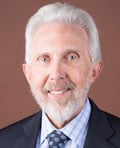
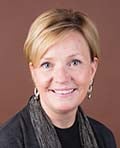 Presenters: William Parrett, Kathleen Budge
Presenters: William Parrett, Kathleen Budge
In this era of pandemic schooling, much can be learned from high-performing, high-poverty schools. By necessity and design, educators in such schools must tackle the same issues which pandemic-schooling has recently leveled on many public schools. Without cultivating the capacity and efficacy necessary to address social and emotional learning, proactively respond to trauma, accelerate learning for students who are behind, and authentically engage parents; the chances of improving academic and other student outcomes would have been significantly diminished, if not impossible.
Confident the capacity and collective efficacy they had witnessed would generalize to the new reality educators are facing, Bill and Kathleen, authors of the 2nd Edition of Turning High-Poverty Schools into High-Performing Schools (2020) and Disrupting Poverty: Five Powerful Classroom Practices (2018), circled back to successful practitioners who were a part of these two recent studies to seek their advice, insight, specific ideas and strategies.
In this session, the authors will revisit their Framework for Collective Action and share new insight on the strategies high-poverty schools use to confront seemingly insurmountable challenges. Participants will understand why, and how, those same strategies can support educators as they respond to the challenges posed by pandemic-era schooling. Fresh perspectives on the importance of committing to equity will be shared, as well as strategies for developing the collective efficacy necessary to address SEL, effectively responding to trauma, accelerating learning for students who are behind, and authentically engaging parents.
Participant Outcomes:
- Emerge with an enhanced understanding of the processes and strategies through which high-performing, high-poverty schools successfully address significant problems of practice now common to many schools in the US and abroad in this era of pandemic-schooling.
- Further develop the knowledge, skills, and understanding necessary to cultivate individual and collective efficacy in your school to disrupt the adverse effects of poverty on student learning.
- Emerge with an enhanced understanding of the role school culture plays in addressing challenges posed pandemic-schooling.
- Develop an awareness of effective protocols, procedures, strategies and tools to support timely action planning.
Each participant will receive the following books:
- Turning High-Poverty Schools into High-Performing Schools, Second Edition
- Disrupting Poverty: Five Powerful Classroom Practices
THIS EVENT IS SOLD OUT.
Top ^
Unpacking the Definitive Guide to Instructional Coaching

Presenter: Jim Knight
Description: For more than 25 years, Jim Knight and his colleagues have been developing, refining, and studying instructional coaching. In his new book, The Definitive Guide to Instructional Coaching, Jim has summarized that research in seven success factors that need be a part of any successful coaching program. In this pre-conference, Jim will discuss each factor, explain why it essential for success, and explain how it can be implemented. Anyone who is interested in coaching or coaching programs should find this session very useful. Participants will also receive many free tools and forms they can use to ensure that coaching flourishes in their organization.
Participant Outcomes: Coming soon
Each participant will receive the following book: The Definitive Guide to Instructional Coaching: Seven Factors for Success
THIS EVENT IS SOLD OUT.
Top ^
Leading the Change: Reimagining and Restoring Community through the Whole Child Lens
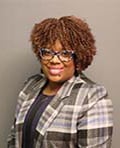
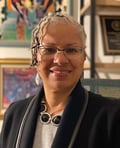 Presenters: Amy Neloms, Alicia S. Monroe
Presenters: Amy Neloms, Alicia S. Monroe
In a time marked by constant change, shifts, and the need to adapt our norms and practices to holistically meet the needs of the students, learning community, and stakeholders that we, as educators, serve, reimagining and restoring healthy learning spaces has increasingly become a daunting imperative. Using the Whole Child framework to create, re-create, and co-create a culture of belonging and achievement in schools is the natural and organic approach that inspires growth and authentic engagement for all members of a learning community.
Hearing from the voices in the field is one of the highlights of this session. The Superintendent and Associate Superintendents of the Wilson School District in West Lawn, PA. will share stories of their journey with implementing the Whole Child approach. Specifically, the district administrators will share leadership and learning outcomes that directly affirm their vision, commitment, and desire to implement the Whole Child framework with fidelity in their district. A snapshot of the outlook of the Wilson SD leadership team follows.
"For us, a whole child education exemplifies the commitment to engaging the minds and hearts of all "students" while also prioritizing the human essence of each "child" as an individual. As a school district community, we are dedicated to understanding the needs and strengths of all learners while pursuing excellence in all facets of our complex system that promotes a nurturing, supportive, challenging, and caring environment - every day."
This session will shift Whole Child from a "buzzword" to an action generator and it will move perceptions of the Whole Child tenets to an achievable reality for participants.
Participant Outcomes:
- Understand what ASCD Whole Child is and what it isn't.
- Deep dive and evaluate the ASCD Whole Child tenets.
- Engage in generative dialogue to establish a solid understanding of the foundational aspects of the Whole Child framework.
- See Whole Child through the lens of an activator and identify the next steps toward the true implementation of the Whole Child approach.
Books are not included with this institute but resources will be provided by the presenters on-site.
THIS EVENT IS CANCELLED.
Top ^
All Learning is Social and Emotional

Presenter: Dominique Smith
Academic learning may be the explicit focus of schooling, but what teachers say, the values we express, the materials and activities we choose, and the skills we prioritize all influence how our students think, see themselves, interact with content and with others, and assert themselves in the world. Although social and emotional learning (SEL) is most familiar as compartmentalized programs or specific interventions, the truth is that all learning is social and emotional. This institute will make the case for taking a deliberate approach to the "hidden curriculum" already being taught, presenting a five-part model of SEL that's easy to integrate into everyday content instruction.
Participant Outcomes:
- Identify the five tenets of social and emotional learning.
- Describe ways to integrate SEL into the classroom.
- Analyze learning environments for opportunities to build students' social and emotional skills.
Each participant will receive the following book: All Learning Is Social and Emotional: Helping Students Develop Essential Skills for the Classroom and Beyond
THIS EVENT IS SOLD OUT.
Top ^
Teaching for Deeper Learning
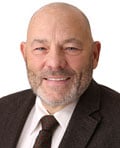
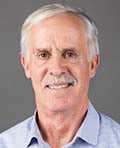 Presenters: Harvey Silver, Jay McTighe
Presenters: Harvey Silver, Jay McTighe
Join best-selling authors, Dr. Harvey Silver, and special guest, Jay McTighe, as they share and explore key ideas from their award-winning ASCD book, Teaching for Deeper Learning: Tools to Engage Students in Meaning Making. This interactive institute will show educators how to teach for deeper learning and greater equity by framing their modern curriculum around conceptually big ideas and incorporating teaching techniques that will help all students actively "construct" understanding about these ideas.
The authors will explore the definition of, and need for, deeper learning. They will present and model practical instructional tools and strategies proven to help students make meaning, achieve deep learning, and transfer their learning into the real world.
Participant Outcomes:
- The two needed shifts in curriculum and instruction needed to support deep learning.
- Two ways of framing the curriculum to highlight the content and skills worth learning deeply.
- Five practical and proven skills and associated tools to develops the skills students need to make meaning, think conceptually, and transfer their learning to the real world.
- How to use the "deeper learning" approach to increase student engagement, address cultural relevance and diversity, and help all students see themselves in the curriculum.
Each participant will receive the following book: Teaching for Deeper Learning: Tools to Engage Students in Meaning Making
THIS EVENT IS SOLD OUT.
Top ^



 Presenters:
Presenters: 
 Presenters:
Presenters: 

 Presenters:
Presenters: 

 Presenters:
Presenters: